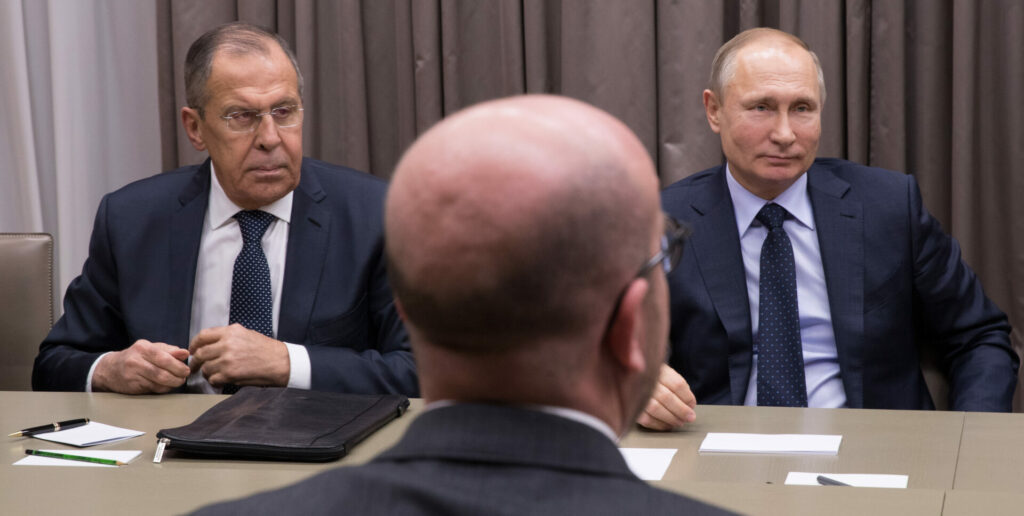Russia threatened the grain deal with the Ukraine after it hit the port city Odessa with a missile strike on Saturday. A UN-brokered agreement to let grain pass through the Russian Black Sea naval blockade was struck on Friday in Istanbul as Russia and Ukraine signed an agreement with Turkey and the UN.
But the deal was barely sealed before a Russian missile strike hit Odessa, the main port city. Moscow confirmed that a Ukrainian warship and Western military equipment was struck and claimed it was unrelated to the grain agreement.
It is not clear from photos of the wreckage if the strike was intended to disrupt grain exports. Yet the missile strike raises doubts as to whether Russia will comply with the deal amid fears that Russian President Vladimir Putin will weaponize the global food shortage to put pressure on Ukraine and its allies.
Politicians reacted furiously:
Ukraine's Foreign Minister Oleg Nikolenko accused Russia of jeopardising the agreement and exacerbating food shortages in countries dependent on Ukrainian grain:
Russian diplomacy in Africa
The attack on Odessa occurred just a day before Russian Foreign Minister Sergei Lavrov embarked on a journey across Africa in an effort to counter the claim that Russia is 'exporting hunger'. Lavrov visited Cairo on Sunday and in the coming days will visit Ethiopia, Congo-Brazzaville and Uganda.
The grain deal is crucial in Africa, as 40% of grain imports come from Ukraine and Russia, according to the African Development Bank. Egypt has already suffered for months due to a lack of grain imports.
In an article published on Russia's Foreign Affairs Ministry website, Lavrov wrote that the West is trying to blame the grain shortage on Russia. The minister made accusations of "Western propaganda".
Related News
- EU is not accepted by Russia as mediator to end the war in Ukraine
- Grain exports: Ukraine will only sign an agreement with the UN and Turkey
- 'Putin is waging a war against the unity of Europe,' says German President
Whether African leaders believe Lavrov's claims is less clear; most are staying clear of the war in Ukraine, remaining silent on the Western sanctions on Russia and often distancing themselves from Moscow when voting at the UN Security Council.
It is clear that Lavrov aims to win hearts on this tear and the continent isn't immune to his claims. In June, Macky Sall, the Senegalese president and head of the African Union, met Russian President Vladimir Putin last month and consequently began calling for countries to lift sanctions on Russia.
Moreover, many countries in West Africa receive the support of Russian mercenaries from the Wagner group in the fight against Muslim fundamentalists.
Ukrainian response
Ukraine aims to continue with grain exports and has requested the help of Turkey and the UN to enforce the agreement.
Whether Russia will honour the grain deal is uncertain given that Ukraine is the beneficiary. Ukraine would be able to export 60 million tons of grain over the next six months, bringing the country approximately $10 billion.
Russia is doing all it can to limit the budget of Ukrainian forces, especially as Ukraine is preparing a counter-offensive to take back the southern city of Kherson.

